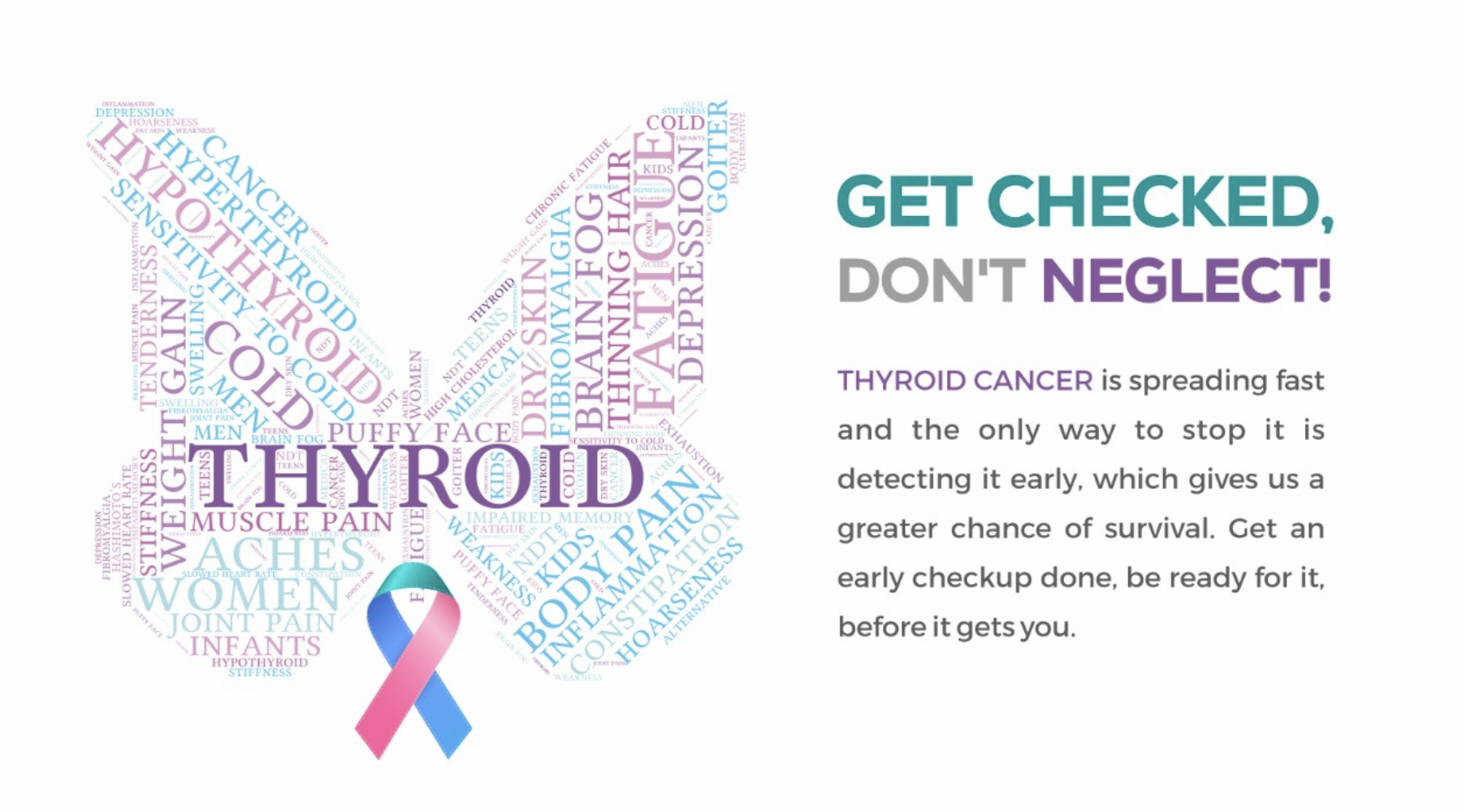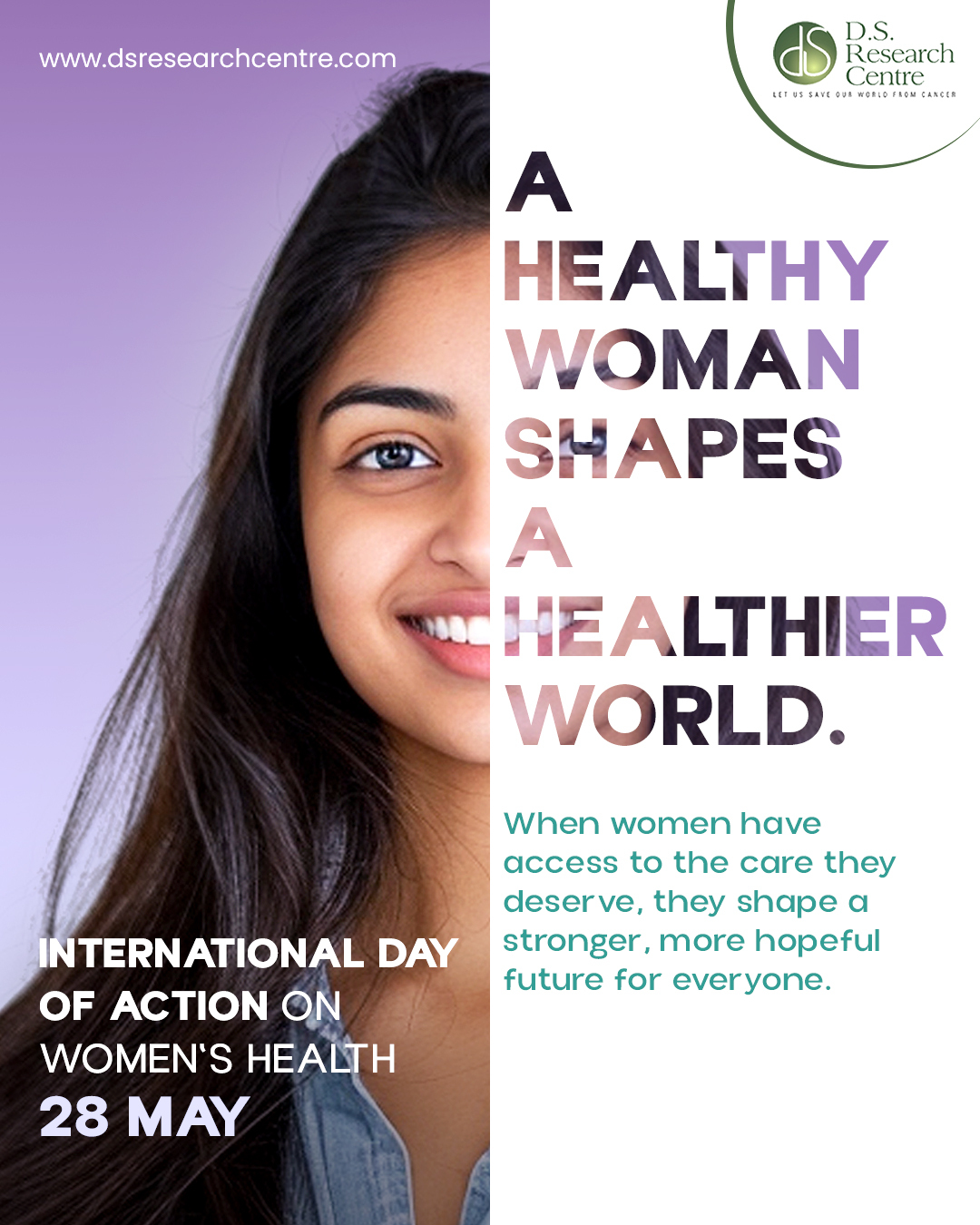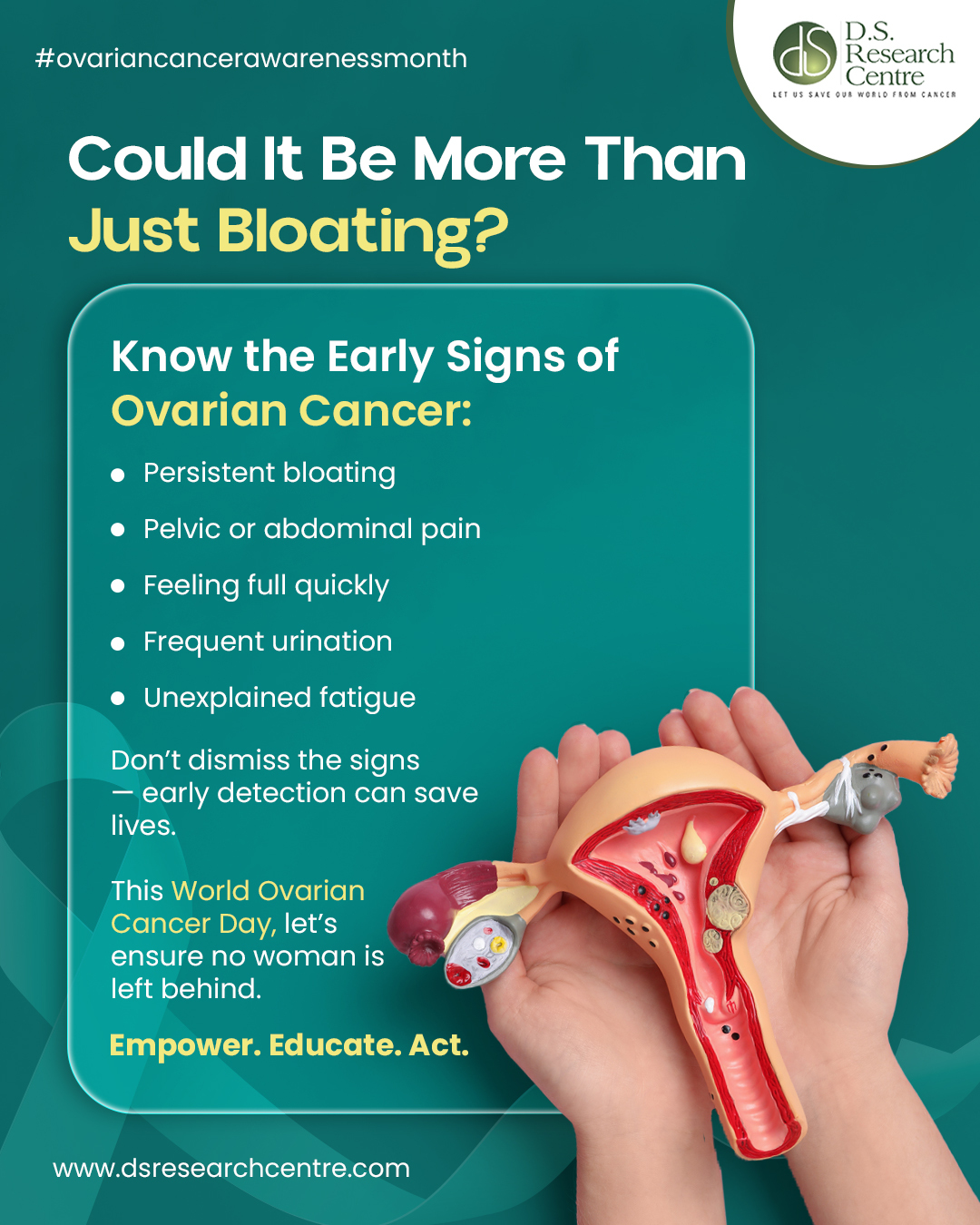September is Thyroid Cancer Awareness Month, a time to focus on this often-overlooked yet crucial health issue. Thyroid cancer may not be the most discussed form of cancer, but it is important to be informed about its risks, symptoms, and prevention. This guide will help you understand thyroid cancer, risk factors, diagnosis, and treatments, including the holistic role of Ancient Ayurveda-based Nutrient Energy Treatment, which has given many advanced thyroid cancer patients a second lease on life.

What is Thyroid Cancer?
Thyroid cancer develops when abnormal cells in the thyroid gland, a small butterfly-shaped gland at the base of the neck, grow uncontrollably. The thyroid gland, a key part of the endocrine system, produces hormones that regulate your body’s metabolism, temperature, blood pressure, and heart rate.
Thyroid cancer most commonly affects individuals aged 45-64 years, though it can occur at any age. Women are at a significantly higher risk than men.
Types of Thyroid Cancer
1. Papillary Thyroid Cancer
2. Follicular Thyroid Cancer
3. Medullary Thyroid Cancer
4. Anaplastic Thyroid Cancer
Why Thyroid Cancer Awareness Matters
Raising awareness about thyroid cancer can lead to early detection, improved treatment outcomes, and dispelling common myths. Here’s why awareness is essential:
1. Early Detection Saves Lives
Recognising the signs and seeking medical advice early can significantly improve survival rates.
2. Symptoms to Watch Out For
- A lump or swelling in the neck
- Changes in voice (hoarseness)
- Difficulty swallowing or breathing
- Persistent cough not related to a cold
- Swollen lymph nodes in the neck
3. The Importance of Regular Check-ups
Even without symptoms, regular check-ups can catch thyroid issues early. Routine ultrasounds or blood tests may detect abnormalities before they become serious.
Risk Factors for Thyroid Cancer
Understanding the risk factors can help in early detection and prevention:
- Gender:Women are more likely to develop thyroid cancer.
- Age: It most commonly occurs between 45 and 64 years.
- Obesity:High body mass index (BMI) is linked to increased risk.
- Low Iodine Intake: A diet low in iodine can increase the risk of thyroid cancer.
- Enlarged Thyroid (Goitre): A precursor to thyroid abnormalities.
- Family History: Genetic conditions like familial medullary thyroid carcinoma.
- Radiation Exposure:Prior exposure to radiation therapy, particularly in the head, neck, or chest, increases risk.

|
Debunking Thyroid Cancer Myths
Many people mistakenly believe that thyroid cancer is rare or not serious. In fact, thyroid cancer is treatable but needs timely diagnosis and intervention. Awareness can dispel such myths and encourage individuals to take symptoms and risk factors seriously.
Diagnosis and Treatment Options
If you experience symptoms or have risk factors, your doctor may recommend diagnostic tests, such as:
- Ultrasound:To check for thyroid nodules.
- Fine Needle Aspiration (FNA) Biopsy:To sample tissue from a thyroid nodule.
- Blood Tests:To check thyroid hormone levels.
Treatment will depend on the type and stage of thyroid cancer and may include:
- Surgery: Removal of the thyroid gland.
- Radioactive Iodine Therapy
- Thyroid Hormone Therapy
- External Radiation Therapy
Ayurveda’s Role in Thyroid Cancer Treatment
Ayurveda, the ancient Indian system of medicine, offers a holistic approach to health, including cancer care. In Ayurveda, thyroid cancer can be understood as an imbalance of the Kapha and Pitta doshas as well as disturbances in Mamsa Dhatu (muscle tissue) and Rasa Dhatu (plasma). Ayurveda emphasises balancing the body’s energies and supporting the body’s natural healing process.
Ayurvedic Treatment Approaches for Thyroid Cancer
- Diet and Herbs: Dietary changes are recommended to reduce Kapha and Pitta doshas. Herbs like turmeric, ginger, garlic, and Triphala are used for their anti-inflammatory and detoxifying properties.
- Panchakarma Therapy:This Ayurvedic detoxification process helps cleanse the body, balancing the doshas and supporting overall health.
- Lifestyle Adjustments:Regular exercise, yoga, meditation, and stress management techniques can improve quality of life and support the body’s healing.
Prevention and Early Detection
While not all cases of thyroid cancer are preventable, certain steps can help with early detection:
- Regular Check-ups: Periodic visits to your doctor to monitor thyroid health, especially if you have risk factors.
- Self-Exams: Familiarize yourself with the feel of your neck to detect any unusual lumps.
- Healthy Lifestyle: Maintaining a balanced diet, staying physically active, and managing stress are key preventive measures.
Conclusion: Spreading Awareness Saves Lives
Thyroid cancer may be less discussed, but with early detection and proper treatment—including the wisdom of Ayurveda—patients can achieve positive outcomes. By spreading awareness and prioritizing health, we can help more individuals stay informed and take proactive steps toward prevention.
For more information on thyroid cancer treatment and how Ayurveda-based Nutrient Energy Treatment can help, contact D.S. Research Centre today at 8130594141.
Help spread awareness and make a difference today!
#Thyroid Cancer Awareness, #Types of Thyroid Cancer, #Thyroid Cancer Symptoms, #Ayurveda in Thyroid Cancer Treatment, #Nutrient Energy Treatment, #Thyroid Cancer #Prevention, #Early Detection of Thyroid Cancer, #Ayurvedic Treatment for Thyroid Cancer








Posted on April 15, 2016
Posted on April 15, 2016